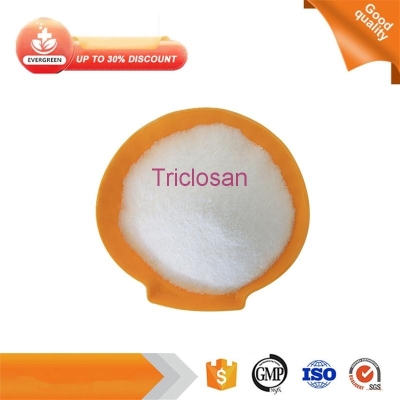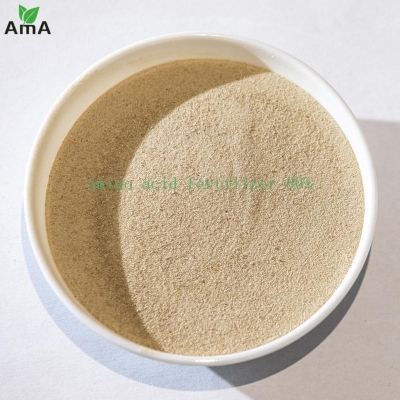-
Categories
-
Pharmaceutical Intermediates
-
Active Pharmaceutical Ingredients
-
Food Additives
- Industrial Coatings
- Agrochemicals
- Dyes and Pigments
- Surfactant
- Flavors and Fragrances
- Chemical Reagents
- Catalyst and Auxiliary
- Natural Products
- Inorganic Chemistry
-
Organic Chemistry
-
Biochemical Engineering
- Analytical Chemistry
- Cosmetic Ingredient
-
Pharmaceutical Intermediates
Promotion
ECHEMI Mall
Wholesale
Weekly Price
Exhibition
News
-
Trade Service
Today, Endpoints News, a well-known industry media, released The 20 under 40 in Biopharma, a new generation of leaders in the field of biomedicine, with a total of 21 young scientists and entrepreneurs on the list
Omar Abudayyeh, Jonathan Gootenberg (MIT researcher, co-founder of Sherlock Biosciences)
Omar Abudayyeh, Jonathan Gootenberg (MIT researcher, co-founder of Sherlock Biosciences)Omar Abudayyeh and Jonathan Gootenberg, Ph.
Cas13 forms the basis for innovative molecular detection methods
From this molecular assay was born Sherlock Biosciences, which has raised nearly $130 million to develop molecular assays for cancer and infectious diseases
Theonie Anastassiadis (Co-founder and Chief Innovation Officer at Alltna)
Theonie Anastassiadis (Co-founder and Chief Innovation Officer at Alltna)Dr.
Another strategy is to replace the tRNA so that the tRNA recognizes the premature stop codon and adds the correct amino acid
Dr.
Sam Bakhoum (co-founder of Volastra)
Sam Bakhoum (co-founder of Volastra)Dr.
Based on this discovery, Dr.
Jake Becraft (Co-founder and CEO of Strand Therapeutics)
Jake Becraft (Co-founder and CEO of Strand Therapeutics)Dr.
Strand Therapeutics' goal is to use synthetic biology to engineer mRNA to generate programmable, long-acting mRNA therapeutics
Seemay Chou (Co-founder and CEO of Arcadia Science)
Seemay Chou (Co-founder and CEO of Arcadia Science)Dr.
The goal of Arcadia Science, a company co-founded by Dr.
Abasi Ene-Obong (Founder and CEO of 54Gene)
Abasi Ene-Obong (Founder and CEO of 54Gene)Today, although scientists have completed the sequencing of the human genome and constructed a complete genome map
Dr.
Nicholas Flytzanis (Co-founder and Chief Scientific Officer of Capsida)
Nicholas Flytzanis (Co-founder and Chief Scientific Officer of Capsida)Nick Goeden (Co-founder and CTO of Capsida)
Nick Goeden (Co-founder and CTO of Capsida)Adeno-associated virus (AVV) is one of the important vectors for the delivery of gene therapy.
Isaac Kinde (Co-founder of Thrive)
Isaac Kinde (Co-founder of Thrive) Dr.
Isaac Kinde studied at Johns Hopkins University under the tutelage of cancer research pioneer Professor Bert Vogelstein
.
The liquid biopsy he helped develop analyzed genomic mutations in circulating tumor DNA (ctDNA) and cancer-related protein markers in plasma, finding common features across many different cancer types
.
Thrive Earlier Detection, which was born based on this detection, received $110 million in Series A financing in 2019 and is committed to developing a liquid biopsy that can detect multiple cancer types at an early stage
.
Research published in Science in 2020 showed that the company's CancerSEEK test, added to routine cancer screenings, allowed doctors to detect 52% of cancers, nearly double the rate of routine screening (26.
1%)
.
In 2020, Exact Sciences announced the acquisition of Thrive
.
Dr.
Kinde is currently at Exact Sciences evaluating emerging technologies to make liquid biopsy easier, faster, and more accessible
.
Najat Khan (Chief Data Science Officer, Johnson & Johnson Drug Discovery)
Najat Khan (Chief Data Science Officer, Johnson & Johnson Drug Discovery) Dr.
Najat Khan took a computer science course while pursuing his Ph.
D.
in organic chemistry at the University of Pennsylvania, learning how to use data to predict which molecules bind more strongly to specific receptors on the surface of cancer cells
.
While the use of artificial intelligence for molecular design and optimization is now being used by several biotech and pharmaceutical companies, more than a decade ago, it seemed like an unpopular decision
.
Ultimately, Dr.
Najat Khan's research project came to fruition, and she developed algorithms that continuously learned from failures and iterated to optimize candidate molecules
.
The success of this project was the starting point of her career, and she was eventually hired by Johnson & Johnson as the Chief Data Science Officer of the Pharmaceutical Research and Development Department, leading about 150 scientists and engineers in the effort to integrate machine learning and other data science tools into drug discovery in the process
.
Isaac Klein (Chief Scientific Officer, Dewpoint Therapeutics)
Isaac Klein (Chief Scientific Officer, Dewpoint Therapeutics) Dr.
Isaac Klein has been working on biomolecular condensates at the Whitehead Institute since 2017
.
In cells, in addition to the well-known organelles with cell membranes such as mitochondria and endoplasmic reticulum, there are also many organelles without cell membranes.
These membraneless organelles are formed by liquid-liquid phase separation (LLPS).
, which are widespread in cells and can bring together proteins, RNAs and other macromolecules and sequester unrelated molecules, accelerating chemical reactions
.
These membraneless organelles are also known as biomolecular condensates
.
Dr.
Klein joined Dewpoint Therapeutics to discover disease-relevant aggregate biology and then develop small-molecule drugs that target these pathways
.
The company has reached cooperation with pharmaceutical companies such as Merck, Pfizer, and Bayer
.
Dr Klein said biomolecular aggregates could provide a "whole new world and a whole new way" for cancer drug development
.
Tim Knotnernus (CEO of Agomab)
Tim Knotnernus (CEO of Agomab) Mr.
Tim Knotnernus worked for Aescap Venture, a venture capital firm, where he was responsible for investments in European medical companies
.
But he prefers to take a more active role in the drug development process
.
This made him CEO of Agomab in 2019
.
The company is focused on developing agomAbs, an agonistic antibody drug that mimics hepatocyte growth factor (HGF)
.
Hepatocyte growth factor (HGF) is a polypeptide growth factor with a variety of biological activities produced by various organs of the human body.
HGF plays an important role in cell growth and differentiation, angiogenesis, embryonic development, wound healing through paracrine or autocrine mechanisms.
and repair play a vital role
.
More than three decades of research have shown that HGF has demonstrated potent curative potential in preclinical models of organ fibrosis, inflammation, autoimmune and degenerative diseases
.
The agonistic monoclonal antibody agomAbs developed by AgomAb against the MET receptor can bind to MET with high affinity, promote the dimerization and activation of the receptor, and replace the molecular role of HGF
.
AgomAbs not only retain the therapeutic potential of HGF, but are also more stable, less toxic and safer
.
Most recently, the company acquired Spanish biotech company Origo, further expanding the company's R&D pipeline
.
Claire Mazumdar (CEO of Bicara)
Claire Mazumdar (CEO of Bicara) After receiving her PhD in cancer biology from Stanford University, Dr.
Claire Mazumdar worked at Editas Medicine and then venture capital firm Third Rock
.
Early on, she decided to work on translating science into therapy, rather than working in academia like her parents
.
In 2020, she became CEO of Bicara Therapeutics
.
The company's main investigational therapy, BCA101, is a bispecific antibody
.
One end of it can bind to EGFR receptors on the surface of cancer cells, and the other end is a TGF-beta trap
.
TGF-beta plays an important role in creating an immunosuppressive tumor microenvironment, and by capturing TGF-beta, this therapy may alter the tumor microenvironment to help enhance the anticancer activity of immune cells
.
It is currently being tested in a Phase 1/1b clinical trial, with results expected by the end of this year
.
Dina Radenkovic (CEO of Gameto)
Dina Radenkovic (CEO of Gameto) Women are born with about 2 million eggs, however after the age of 35, the number of eggs decreases dramatically, and by age 45 most women are barely able to conceive
.
One of the main reasons is that the ovaries age 5 times faster than the rest of the body!
This is the problem that the company Gameto, founded by Ms.
Dina Radenkovic, aims to solve
.
The company's goal is to synchronize the pace of ovarian aging with that of other organs by developing an ovarian therapy platform
.
Some initial studies in Professor George Church's laboratory at Harvard Medical School show that Gameto has achieved a breakthrough in solving the problem of accelerated ovarian aging, generating the first human ovarian reprogrammed cells (granulosa cells and oocytes).
precursor)
.
The platform will initially be used to improve the assisted reproduction process, and it is hoped that it will eventually lead to the development of cell therapies that address the medical burden of menopausal women
.
Aaron Ring (Professor at Yale University, founder of Simcha)
Aaron Ring (Professor at Yale University, founder of Simcha) Yale professor Dr.
Aaron Ring represents an emerging force in translational research
.
Since 2015, he has helped launch several biotech companies including ALX Oncology, Ab Initio Biotherapeutics
.
The most recent company is Simcha Therapeutics
.
Research in Prof.
Ring's lab has shown that the protein-engineered cytokine IL-18 has potent anti-tumor effects in animal models
.
Related research was published in the journal Nature in 2020
.
Based on this research, Simcha Therapeutics completed a $40 million Series B financing earlier this year, and its flagship potential "first-in-class" IL-18 variant has now entered Phase 1/2 clinical trials
.
Lex Rovner (Co-founder and CEO of 64x Bio)
Lex Rovner (Co-founder and CEO of 64x Bio) Dr.
Lex Rovner co-founded 64x Bio, a synthetic biology company, based on the laboratory's technology when he was a postdoctoral fellow in George Church's lab at Harvard University
.
The company's goal is to use high-throughput screening to discover cell lines that can substantially increase viral vector productivity
.
Its unique genetic barcoding system links viral vector productivity information to vector-producing cell lines, allowing simultaneous parallel screening of millions of candidate cell lines
.
The company raised $55 million in Series A funding this year, and Dr.
Rovner said the technology has the potential to revolutionize the economics of gene therapy and expand the patient population this treatment model can reach
.
Nabiha Saklayen (Cellino co-founder and CEO)
Nabiha Saklayen (Cellino co-founder and CEO) Dr.
Saklayen is a PhD in Physics from Harvard University, during which she began to dabble in the life sciences
.
In 2017, she co-founded Cellino Biotech with two other partners
.
The company's technology platform combines label-free imaging, high-speed laser editing and intelligent algorithm (AI) technologies to automate cell reprogramming, expansion and differentiation
.
This breakthrough method enables the processing of thousands of patient samples in parallel in a single facility, benefiting more patients
.
It closed an $80 million Series A in January this year
.
Dr.
Saklayen has also appeared on the Forbes "30under30" list and the MIT Technology Review's 35 Under 35 Tech Innovators list
.
Sharif Tabebordbar (Co-founder and Chief Scientific Officer, Kate Therapeutics)
Sharif Tabebordbar (Co-founder and Chief Scientific Officer, Kate Therapeutics) Dr.
Sharif Tabebordbar's father gradually lost the ability to walk due to a muscle-wasting disease, which led him to develop treatments for the muscle-wasting disease
.
Gene therapy has shown good promise in treating such diseases, but how to make the viral vector delivering gene therapy target the muscle instead of being swallowed by the liver is a problem that scientists need to solve
.
Dr.
Tabebordbar's strategy is to generate millions of different virus variants and inject them into mice or monkeys
.
By sequencing the animal tissue, he could determine which virus variant transfected muscle more efficiently
.
His findings have already spawned a biotech company called Kate Therapeutics
.
He hopes the research will lead to safer and more effective treatments
.
Pamela Ting (Novartis, scientist)
Pamela Ting (Novartis, scientist) Dr.
Pamela Ting is a scientist at the Novartis Institutes for Biomedical Research
.
She leads work to develop a small-molecule drug for sickle cell anemia
.
Sickle cell anemia affects thousands of African patients, and while gene therapies to treat the disease are expected to be approved, leading to potentially curative treatments for patients, their development and manufacture require significant resources and may only be used in the most severely treated patients
.
A small molecule therapy is expected to benefit a large number of patients
.
So far, Dr.
Ting's team has discovered small molecules that activate fetal hemoglobin
.
Fetal hemoglobin is no longer expressed after the baby is born, and if it could be re-expressed with drugs, it could have the same effect as gene therapy
.
Vasanthi Viswanathan (Co-founder and Head of Discovery Biology, Kojin Corporation)
Vasanthi Viswanathan (Co-founder and Head of Discovery Biology, Kojin Corporation) Dr.
Viswanathan conducts cutting-edge research at Columbia University and Harvard University on how cancer cells can be reprogrammed to evade drug treatment
.
Together with her mentor, Dr.
Stuart Schreiber of Harvard University, she co-founded Kojin Corporation
.
The platform developed by Kojin focuses on measuring the state cells are in and developing targeted therapies based on the specific state the cells are in
.
Diseased cells function and behave differently from healthy cells, so understanding the state of cells can differentiate them from healthy cells
.
The cell state the company initially targets is the ferroptosis-sensitive state, in which cells are prone to ferroptosis
.
Ferroptosis is a form of cell death in which a chain reaction of lipid peroxidation can destroy cell membranes like a rapidly expanding wildfire
.
By targeting the ferroptosis-sensitive state, Kojin is able to selectively induce ferroptosis in cells while protecting beneficial cells
.
Cells that contribute to fibrosis and immune disease, as well as cancer cells that develop drug resistance, are often ferroptosis-sensitive
.
The company closed a $60 million Series A round last year
.







